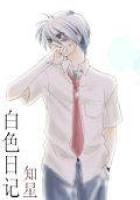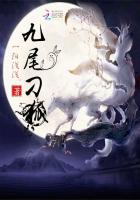The presence of this extraordinary being sent,as it were,a breath of life pulsing through the whole Cathedral.There seemed to emanate from him—at least so said the exaggerating populace—a mysterious influence which animated the stones of Notre-Dame and made the ancient church thrill to her deepest depths.To know that he was there was enough to make them believe they saw life and animation in the thousand statues of the galleries and portals.The old Cathedral did indeed seem docile and obedient to his hand;she awaited his command to lift up her sonorous voice;she was possessed and filled with Quasimodo as with a familiar spirit.You would have said that he made the immense building breathe.He was everywhere in it;he multiplied himself at every point of the structure.Now the terrified beholder would descry,on the topmost pinnacle of a tower,a fantastic,dwarfish figure climbing,twisting,crawling on all-fours,hanging over the abyss,leaping from projection to projection to thrust his arm down the throat of some sculptured gorgon:it was Quasimodo crow's-nesting.Again,in some dim corner of the church one would stumble against a sort of living chimera crouching low,with sullen,furrowed brow:it was Quasimodo musing.Or again,in a steeple you caught sight of an enormous head and a bundle of confused limbs swinging furiously at the end of a rope:it was Quasimodo ringing for vespers or angelus.Often at night a hideous form might be seen wandering along the delicate and lace-like parapet that crowns the towers and borders the roof of the chancel:again the hunchback of Notre-Dame.At such times,said the gossips,the whole church assumed a horrible,weird,and supernatural air;eyes and mouths opened here and there;the stone dogs,the dragons,all the monsters that keep watch and ward,day and night,with necks distended and open mouths,round the huge Cathedral,were heard barking and hissing.And if it happened to be a Christmas-night when the great bell seemed to rattle in its throat as it called the faithful to the midnight mass,there was such an indescribable air of life spread over the sombre f de that the great doorway looked as if it were swallowing the entire crowd,and the rose-window staring at them.And all this proceeded from Quasimodo.Egypt would have declared him the god of this temple;the Middle Ages took him for its demon:he was its soul.
So much so,that to any one who knows that Quasimodo really lived,Notre-Dame now appears deserted,inanimate,dead.One feels that something has gone out of it.This immense body is empty—a skeleton;the spirit has quitted it;one sees the place of its habitation,but that is all.It is like a skull—the holes are there for the eyes,but they are sightless.
1 The guardian of a terrific beast,himself more terrible.
2 The strong youth is wicked.
Chapter 4-The Dog and his Master
There was,however,one human being whom Quasimodo excepted from the malice and hatred he felt for the rest of mankind,and whom he loved as much,if not more,than his Cathedral:and that was Claude Frollo.
The case was ****** enough.Claude Frollo had rescued him,had adopted him,fed him,brought him up.When he was little,it was between Claude Frollo's knees that he sought refuge from the children and the dogs that ran yelping after him.Claude Frollo had taught him to speak,to read,to write.Finally,it was Claude Frollo who made him bellringer of Notre-Dame;and to give the great bell in marriage to Quasimodo was giving Juliet to Romeo.
And in return,Quasimodo's gratitude was deep,passionate,and boundless;and although the countenance of his adopted father was often clouded and severe,although his speech was habitually brief,harsh,imperious,never for one single moment did that gratitude falter.In Quasimodo the Archdeacon possessed the most submissive of slaves,the most obedient of servants,the most vigilant of watch-dogs.When the poor bell-ringer became deaf,between him and Claude Frollo there had been established a mysterious language of signs,intelligible to them alone.In this way,then,the Archdeacon was the sole human being with whom Quasimodo had preserved a communication.There were but two things in this world with which he had any connection:Claude Frollo and the Cathedral.
The empire of the Archdeacon over the bell-ringer,and the bell-ringer's attachment to the Archdeacon,were absolutely unprecedented.A sign from Claude,or the idea that it would give him a moment's pleasure,and Quasimodo would have cheerfully cast himself from the top of Notre-Dame.There was something remarkable in all that physical force,so extraordinarily developed in Quasimodo,being placed by him blindly at the disposal of another.In it there was doubtless much of filial devotion,of the attachment of the servant;but there was also the fascination exercised by one mind over another;it was a poor,feeble,awkward organism standing with bent head and supplicating eyes in the presence of a lofty,penetrating,and commanding intellect.Finally,and before all things,it was gratitude—gratitude pushed to such extreme limits that we should be at a loss for a comparison.That virtue is not one of those of which the brightest examples are to be found in man.Let us then say that Quasimodo loved the Archdeacon as never dog,never horse,never elephant loved his master.
Chapter 5-Further Particulars of Claude Frollo
In 1482 Quasimodo was about twenty,Claude Frollo about thirty-six.The one had grown up,the other had grown old.















